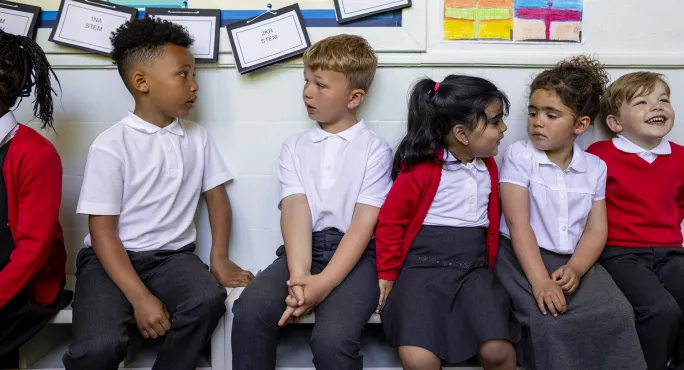What should we call the people that teachers teach?

What do you call the people you teach in your school?
It may seem like an unnecessary question with a simple answer, but parliamentary papers in Scotland have this week shown that it can be a fraught issue.
“Pupils” and “students” remain common terms, but not everyone likes them - some suggest that they are unwelcome hangovers of old-fashioned approaches to education, redolent of hierarchies and less inclusive practices that prevailed in the past.
“Children” used to provide a catch-all, but when - and by which criteria - does a child become an adult? And at what point does it become patronising to someone to call them a child, even if technically and legally they remain one? “Children and young people” has become a favoured solution, but it is unwieldy - and doesn’t “young person”, in its own way, sound potentially patronising?
‘Learner’ an increasingly favoured term
In recent times, “learner” has become increasingly common and, to some extent, you can see why. You could argue that it doesn’t carry the same historical baggage as other terms, that it reflects more modern approaches to education - that the focus is on the person who is learning, whereas the implication of “pupil” is someone waiting to be taught.
The word that educators and policymakers choose, then, may stir tensions between different educational philosophies that bubble under the surface.
(The Tes approach, incidentally, is that we refer to “children” in nurseries, “pupils” in primaries and “students” in secondaries, with “pupils” a cross-sector catch-all and “young people” deployed in some circumstances.)
- Also this week: 3 ways to champion healthy use of AI in schools
- Advice: 6 tips to help teachers learn hundreds of pupils’ names
- Long read: Where in Scotland do all pupils receive mobile devices?
In papers for today’s meeting of the Scottish Parliament’s Education, Children and Young People Committee (with each new parliamentary term, this committee itself faces a choice over what to call itself), the office of Scotland’s commissioner for children and (yes) young people asked members of its Young Advisors scheme - aged 12-17 - for their thoughts on the Education (Scotland) Bill; the commissioner’s office also “extensively consulted” with children and young people from across Scotland over the course of a year.
One thing made clear in the subsequent submission is that the word “learner” is not favoured. In fact, it makes a straightforward appeal: why not call children, “children”?
“We have some concerns about the use of the term ‘learner’ throughout the proposals and indeed more broadly in education,” the submission states.
‘Learner’ could ‘diminish’ children’s rights
In the year that the UN Convention on the Rights of the Child (UNCRC) came into force in Scotland, the dislike of “learner” has a legal, children’s rights basis.
“We acknowledge that a proportion of those doing SQA qualifications in Scotland are adults, but the majority are children,” the submission notes. “There is an inherent risk that, through the use of terms like learner, the status of children as rights holders under the UNCRC may be diminished.”
Underlining this scepticism, it adds: “Securing the involvement of learners [in the education bill] will not secure the involvement of children unless this is specified.”
This raises an important point: in reaching for inclusivity and terminology that no one objects to, does education risk becoming clouded by linguistic vagueness, by generic, imprecise language that is actively unhelpful?
Concerns about word choice in any sphere, education or otherwise, is often dismissed as fussing over trivial “semantics” - but words have power and, sometimes, one’s choice of vocabulary can have far-reaching ramifications.
How do ‘learners’ fit into education reform?
What’s more, the submission from the commissioner’s office see the ambiguity of “learners” as symptomatic of proposals that do not make them and their peers as central to Scottish education reform as some might claim.
“These proposals appear to embed existing power relationships rather than creating a child-friendly mechanism to put children at the centre of decision making, as called for by Professor [Ken] Muir,” it states.
And here is the kicker, an indignant view of how “learners” fits into Scottish education reform: “These proposals simply slot children into an adult-centred governance structure in a way which is tokenistic and risks creating a forum that silences children rather than empowers them.”
Pupil, student, child, young person, learner? You may think there are more important things to worry about - but in education, as in all aspects of life, words carry more weight than is immediately apparent.
Henry Hepburn is Scotland editor at Tes. He tweets @Henry_Hepburn
For the latest in Scottish education delivered directly to your inbox, sign up for Tes’ The Week in Scotland newsletter
Keep reading for just £1 per month
You've reached your limit of free articles this month. Subscribe for £1 per month for three months and get:
- Unlimited access to all Tes magazine content
- Exclusive subscriber-only stories
- Award-winning email newsletters
topics in this article



